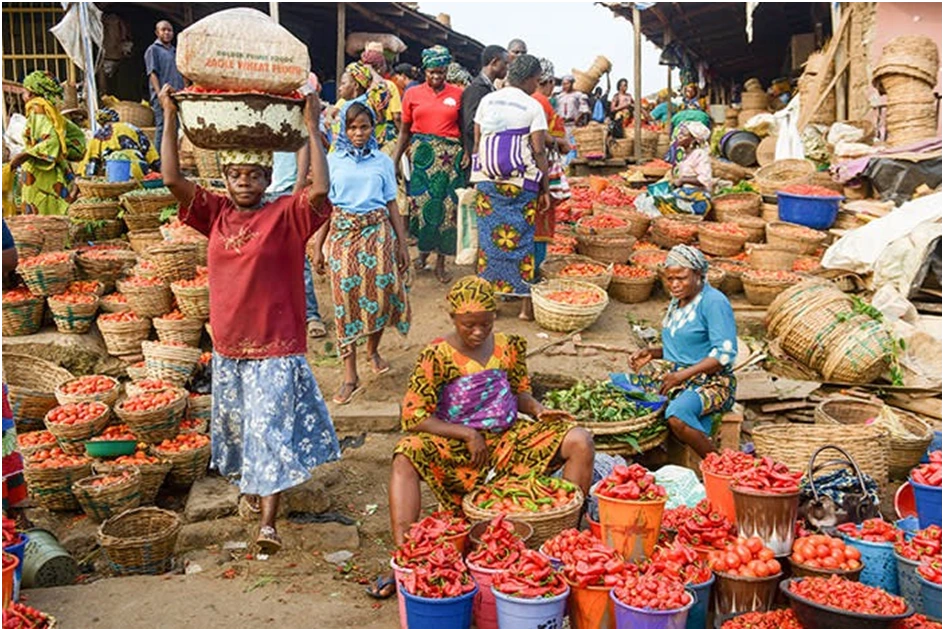
Nigeria’s business environment maintained its positive momentum in September 2025, with the Current Business Performance Index rising to 107.9 points, up from 107.3 points recorded in August, according to the latest NESG–Stanbic IBTC Business Confidence Monitor (BCM).
This steady increase marks nearly a year of continuous growth, with Nigerian firms staying firmly in the expansion zone since December 2024, reflecting optimism even as the economy faces persistent structural issues.
Agriculture Sparks Growth Surge
The standout performer for September was the Agriculture sector, which rebounded strongly after a slight contraction in August. Its BCM Index surged from 95.6 to 107.3 points, buoyed by robust crop production and forestry activities.
This resurgence was driven by bumper harvests, favourable rainfall, and government support programs providing essential inputs, all of which boosted output and investor confidence across the sector.
Remarkably, every agricultural subsector including crop production, forestry, livestock, fishing, and agro-allied industries registered gains. Crop production and forestry notably moved from contraction to expansion, signaling broad-based sectoral strength.
Manufacturing Growth Moderates but Remains Positive
The manufacturing sector continued to expand, though at a slower pace, with its BCM Index dipping slightly to 102.5 points from 106.2 in August.
The slowdown reflects challenges in key sub-sectors such as Food, Beverage and Tobacco, Cement, Plastics, Wood products, Non-metallic products, and Paper — which together represent over three-quarters of Nigeria’s manufacturing output.
Manufacturers face persistent headwinds including unstable power supply, rising diesel costs, frequent outages, high rental fees, raw material shortages, limited credit access, and insecurity, all factors that have squeezed margins and dampened growth prospects.
Services Sector Continues Strong Upward Trend
Contrasting manufacturing, the services sector demonstrated vigorous growth, climbing to 108.5 points in September from 103.7 in August.
Growth was fueled by sustained activity in financial services, information and communications technology (ICT), and logistics underpinned by easing inflation and a relatively stable exchange rate.
As Nigeria’s largest employer and a critical GDP contributor, the services sector’s resilience supports broader economic recovery, driven by rising consumer demand and increased private-sector investment in technology and innovation.
Mixed Signals: Improving Sentiment but Lingering Risks
Additional sub-indices tracking investment, exports, credit access, and price stability showed marginal improvements, hinting at gradual gains in capital formation and external trade confidence.
Input cost moderation also points toward easing inflationary pressures on businesses. However, the report cautions that the positive trajectory remains fragile.
Ongoing challenges such as financing difficulties, erratic electricity supply, high operating expenses, policy uncertainty, and security concerns continue to hamper investor confidence and economic expansion across sectors.
Supporting the upbeat business sentiment, Nigeria’s National Bureau of Statistics (NBS) recently reported a 4.23% year-on-year growth in real GDP for Q2 2025.
Agriculture contributed significantly, with sector growth accelerating to 2.82% in Q2 2025 compared to 2.60% in Q2 2024 and a modest 0.07% in the previous quarter.
What This Means for Nigeria
The September BCM data highlights a cautiously optimistic outlook for Nigeria’s economy, fueled by agricultural strength and a resilient services sector but tempered by persistent hurdles in manufacturing and systemic challenges.
Sustained policy reforms, infrastructure investments, and security improvements remain critical to turning this momentum into lasting, broad-based economic growth.



